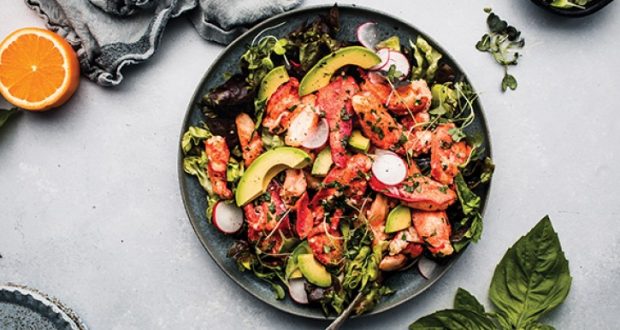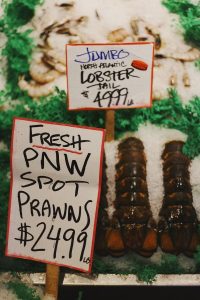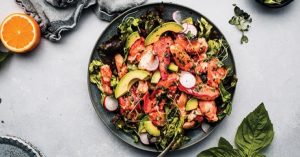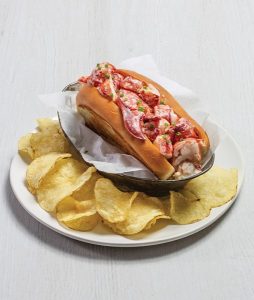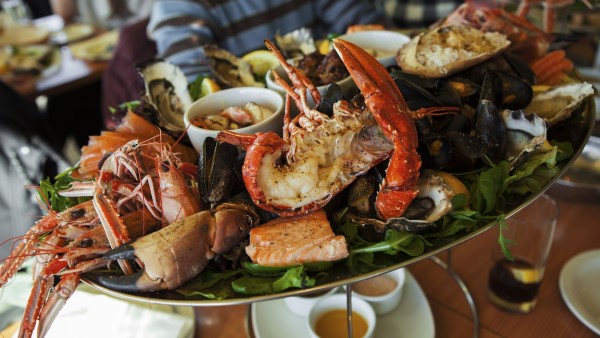Recipes courtesy of Erin Lynch.
FOOD & DRINK — The arrival of summer means favorites like fresh seafood are back on the menu for many families. This year, as you explore new and inventive ways to add variety to weeknight dinners and backyard barbecues, consider including lobster as a versatile, indulgent ingredient.
Throughout the summer months, lobstermen up and down the Maine coast set off before dawn in pursuit of one of the most beloved crustaceans in the world. As one of the oldest fisheries in the country, the industry boasts a rich history with an unparalleled commitment to sustainability and environmental stewardship that has allowed it to thrive for generations.
In addition to its distinctly sweet flavor, consider these reasons to add Maine lobster to your menu this summer:
Sustainability
To help protect the lobster population and the livelihood of those in the fishery, the lobstermen pioneered sustainability and traceability practices before it was fashionable. The sustainability measures developed and adapted over generations, such as protecting egg-bearing females and releasing juvenile lobsters, have preserved the fishery and produced abundant lobster stocks.
Small Business Support
Unlike many commercial fisheries, the Maine lobster industry consists of more than 5,000 independent lobstermen who own and operate small day boats. Many lobstermen are from multi-generational lobstering families, which, along with a mandatory apprenticeship program, ensure its continued survival.
Front Lines of Science
Mother Nature and science guide the fishery, meaning ongoing collaboration between scientists and fishermen to research the health of the lobster population and adapt to the effects of climate change to help protect the oceans.
Protection of Endangered Species
Sustainability for the industry means taking care of the larger marine environment and the species that rely on it. Since the 1990s, Maine lobstermen have taken proactive steps to protect endangered North Atlantic right whales by eliminating surface float rope, incorporating weak links to allow whales to break free in the event they encounter gear and marking rope to ensure traceability.
Community Engagement
The lobster industry goes well beyond the fishermen on the water; including the dealers, processors, restaurant owners, trap and boat builders and more. The fishery is part of the identity of Maine, which means enjoying lobster rolls, grilled tails or steamed lobsters this summer directly supports the community and the lobstermen who call it home.
To find more ways to support the industry and recipes to enjoy this summer, visit lobsterfrommaine.com.
Chilled Lobster with Orange and Basil Vinaigrette
Servings: 4
Dressing
1 tablespoon minced shallots
2 tablespoons olive oil
2 tablespoons fresh orange juice
1 tablespoon fresh lime juice
2 tablespoons chopped fresh basil
1 tablespoon chopped fresh parsley
1/2 teaspoon salt, plus additional, to taste, divided
1/4 teaspoon Dijon mustard
pepper, to taste
1 pound cooked Maine lobster meat, cut into 1-inch pieces
1 head butter lettuce, torn
1 ripe avocado, peeled and diced
3 radishes, thinly sliced
kosher salt
freshly ground black pepper
To make dressing: In medium bowl, whisk shallots, olive oil, orange juice, lime juice, basil, parsley, salt and Dijon mustard.
Season with additional salt and pepper, to taste.
Add lobster to bowl; toss to coat.
Chill at least 1 hour, or up to one day.
To serve: Arrange lettuce on serving plate and place lobster on top.
Sprinkle with avocado, radishes, kosher salt and ground black pepper.
Traditional Lobster Rolls
Yield: 4 rolls
1 pound cooked Maine lobster meat
mayonnaise, to taste, for binding
freshly ground black pepper, to taste
salt, to taste
fresh lemon juice, to taste
4 buttered, toasted rolls or preferred bread
sliced chives, for garnish
In bowl, combine lobster meat; mayonnaise, to taste; pepper, to taste; salt, to taste; and lemon juice, to taste.
Place 3-4 ounces lobster salad on each roll.
Garnish with chives and serve.

